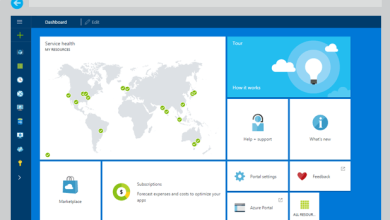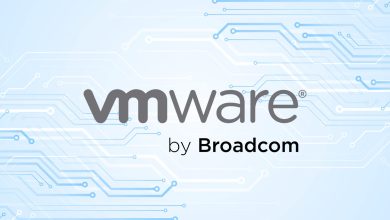Best Cloud Accounting Software For South African Businesses

In a world where juggling tasks can feel like a circus act, imagine having a financial assistant that never drops the ball. Welcome to the realm of cloud accounting – where your financial data is not just stored but dances gracefully across devices, accessible anytime, anywhere.
In today’s fast-paced business environment, efficient financial management is not just a luxury; it’s a necessity for success.
The best cloud accounting software allows businesses to streamline their financial processes, moving away from traditional methods that often involve cumbersome paperwork and tedious manual tasks.
By embracing cloud-based solutions, companies can enjoy enhanced accessibility, real-time updates, improved collaboration, and robust security. For South African businesses aiming to stay ahead of the curve, selecting the right cloud accounting software is essential for maintaining a competitive edge in the marketplace.
The Evolution of Accounting Software
Accounting has always been a foundational element of business, but the methods for managing financial data have undergone a seismic shift. Traditional accounting software often required extensive IT infrastructure, regular updates, and significant maintenance costs. Cloud accounting software, on the other hand, offers a subscription-based model where businesses can access their financial data from anywhere with an internet connection. This change not only reduces costs but also allows for real-time collaboration among team members, enhancing efficiency and decision-making.
At Thrive CFO, we recognise the evolving landscape of financial management. Luan van Rhyn, the founder of Thrive CFO, has over two decades of accounting experience and has seen firsthand how cloud technology has revolutionised business operations. The transition to cloud-based solutions is not merely an option but a necessity for modern enterprises aiming to remain competitive.
Best Cloud Accounting Software Options for South African Businesses
Xero
Xero is a popular choice for small and medium enterprises (SMEs) due to its user-friendly interface and comprehensive features. Key functionalities include:
- Invoicing and Billing: Users can create custom invoices, set up recurring billing, and track overdue payments seamlessly.
- Expense Tracking: Xero allows for easy tracking of expenses through photo uploads of receipts and categorization of costs.
- Bank Reconciliation: Automatic bank feeds help users reconcile transactions quickly and accurately.
- Multi-Currency Support: As businesses expand internationally, Xero’s multi-currency functionality becomes essential, allowing for seamless transactions in different currencies.
Additionally, Xero integrates with a wide range of third-party applications, enhancing its functionality and enabling businesses to tailor the software to their specific needs.
QuickBooks Online
QuickBooks is a well-established name in the accounting industry, known for its robust cloud-based solution. Features include:
- Comprehensive Reporting: QuickBooks offers powerful reporting tools that provide insights into cash flow, profit margins, and overall financial health.
- Payroll Management: This feature simplifies payroll processing, tax calculations, and employee payments, ensuring compliance with local regulations.
- Mobile Access: The QuickBooks mobile app allows users to manage their finances on the go, capturing receipts and sending invoices from anywhere.
QuickBooks also offers various subscription plans, making it accessible for businesses of all sizes, from freelancers to larger enterprises.
Sage Business Cloud Accounting
Sage is a prominent player in the South African market, particularly for businesses in professional services and construction. Its features include:
- VAT Tracking: Sage simplifies VAT management, ensuring that businesses comply with local tax laws while providing accurate reporting.
- Inventory Management: This feature helps businesses keep track of stock levels, orders, and deliveries, making it easier to manage supply chains effectively.
- Integrated Payroll: Sage’s payroll features are tailored to local compliance, making it easier for businesses to handle employee payments and deductions.
With its reputation for reliability, Sage is a solid choice for businesses that require a comprehensive accounting solution.
Zoho Books
Zoho Books provides a cost-effective cloud accounting solution, particularly suited for small businesses and startups. Key features include:
- Automated Workflows: Users can set up automated workflows for invoicing, payment reminders, and expense approvals, enhancing operational efficiency.
- Comprehensive Reporting: Zoho Books offers various financial reports, including profit and loss statements, balance sheets, and cash flow statements, which are essential for strategic decision-making.
- Integration with Zoho Apps: Businesses already using the Zoho ecosystem can seamlessly integrate Zoho Books with other applications, such as Zoho CRM and Zoho Inventory, creating a unified platform.
The affordability and functionality of Zoho Books make it an attractive option for businesses looking to streamline their accounting processes.
Wave
For freelancers and small businesses, Wave offers a free yet powerful cloud accounting solution. Key features include:
- Invoicing and Receipts: Users can create and send professional invoices, as well as scan and upload receipts to track expenses.
- Expense Tracking: Wave allows businesses to categorise expenses easily, helping to maintain accurate financial records.
- Payroll Services: While payroll services are offered for a fee, they remain a valuable addition for businesses needing to manage employee payments.
While Wave may lack some advanced features compared to its competitors, its no-cost option makes it a great starting point for individuals and small businesses.
Why Switch to Cloud Accounting?
The transition to cloud accounting software is more than just a trend; it’s a strategic move that can benefit businesses in multiple ways:
- Accessibility: Cloud accounting software allows users to access their financial data from anywhere, enabling business owners and accountants to work remotely and collaborate in real time.
- Cost-Effectiveness: Traditional accounting systems often require significant upfront investments in hardware and software. Cloud accounting operates on a subscription model, reducing initial costs and providing predictable monthly expenses.
- Data Security: The best cloud accounting software solutions employ advanced security measures, including encryption and multi-factor authentication, to protect sensitive financial information from unauthorised access.
- Scalability: As businesses grow, their accounting needs may evolve. Cloud accounting solutions can easily scale to accommodate new users, increased transactions, and additional features, ensuring that businesses are always equipped to handle their financial management.
- Integration: Many cloud accounting solutions offer integration with other business applications, such as CRM software, e-commerce platforms, and payroll systems. This connectivity streamlines workflows and enhances operational efficiency.
Conclusion
Cloud accounting software represents a transformative opportunity for South African businesses, enabling them to manage their finances more effectively while embracing the digital future. The shift from traditional accounting methods to cloud-based solutions is not merely a trend but a necessity for businesses looking to enhance efficiency, accuracy, and compliance.
At Thrive CFO, we are dedicated to helping businesses navigate this transition, leveraging our extensive experience in financial management to provide tailored solutions that drive growth and sustainability. The best cloud accounting software can empower businesses to focus on strategic initiatives, automate routine tasks, and ultimately thrive in an increasingly competitive landscape.
For more insights on the benefits of cloud accounting, visit our in-depth guide on Cloud Accounting vs. Traditional Accounting. By adopting the right cloud accounting systems, South African businesses can unlock their potential and pave the way for a successful future.




